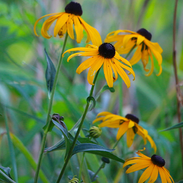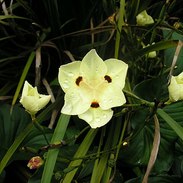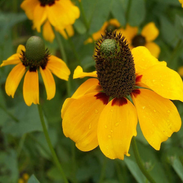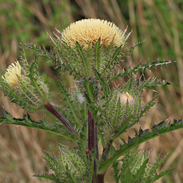We've all been there – enjoying a walk in nature when suddenly, we're covered in those pesky little burs that cling to our clothes. These "sticky" seeds belong to the Beggar-ticks plant (Bidens species), a common weed often dismissed as a nuisance. But what if I told you this tenacious plant has a long history of medicinal use across the globe?
Traditional Uses:
Wound Healing: Beggar-ticks has been traditionally used to stop bleeding, prevent infection, and promote the healing of wounds, cuts, and sores. This is likely due to its astringent and antimicrobial properties.
Anti-inflammatory: Various cultures have used Beggar-ticks to reduce inflammation in conditions like arthritis, rheumatism, and sore throats.
Gastrointestinal Aid: It has been used to treat digestive issues such as diarrhea, dysentery, and stomach aches, potentially due to its anti-inflammatory and antimicrobial effects.
Respiratory Support: Some traditional uses involve treating coughs, colds, and bronchitis, possibly due to its anti-inflammatory and expectorant properties.
Liver and Kidney Health: In some traditional medicine systems, Beggar-ticks is used to support liver and kidney function.
Potential Properties & Modern Research:
While research on Beggar-ticks is ongoing, some studies suggest potential benefits:
Antioxidant Activity: Studies have shown that Beggar-ticks contains antioxidants, which may protect cells from damage caused by free radicals.
Antimicrobial Effects: Research indicates that Beggar-ticks may have antibacterial and antifungal properties, supporting its traditional use for wound healing and infections.
Anti-inflammatory Action: Some studies have identified compounds in Beggar-ticks with anti-inflammatory activity, which could explain its use for various inflammatory conditions.
Anti-diabetic Potential: Preliminary research suggests that Beggar-ticks may help regulate blood sugar levels, but further studies are needed.
Cautions and Considerations:
Allergies: As with any plant, some individuals may be allergic to Beggar-ticks.
Pregnancy and Breastfeeding: Pregnant and breastfeeding women should avoid using Beggar-ticks due to a lack of safety data.
Drug Interactions: There is limited information on potential drug interactions, so it's best to consult with a healthcare professional if you are taking any medications.
Identification: Ensure you correctly identify the Bidens species you intend to use, as different species may have varying properties.
The Future of Beggar-ticks:
As research continues, Beggar-ticks may reveal further medicinal potential. Its traditional uses and preliminary studies suggest it could be a valuable source of natural remedies for various ailments.
Disclaimer: This blog post is for informational purposes only and should not be considered medical advice. Always consult with a qualified healthcare professional before using any herbal remedies.













